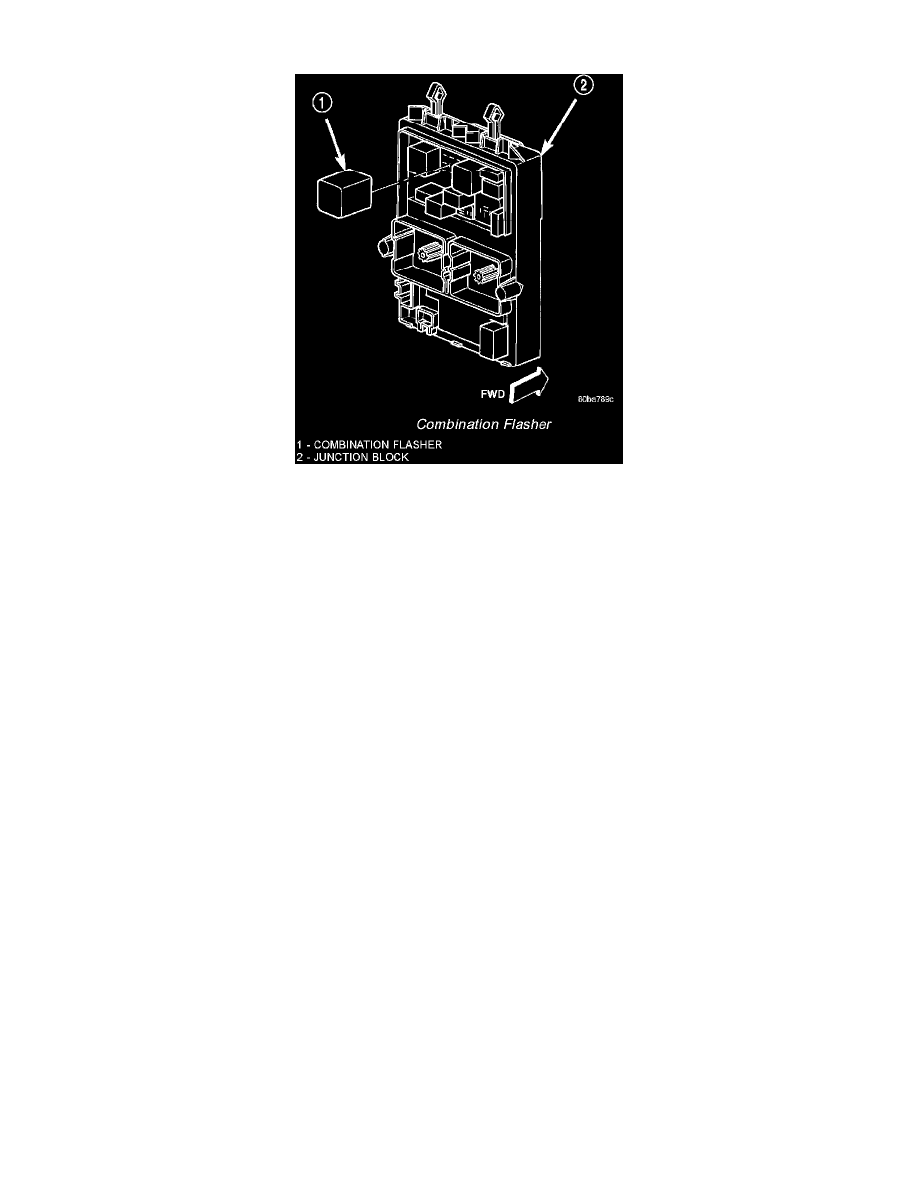Grand Cherokee 2WD V8-4.7L VIN J (2004)

Hazard Warning Flasher: Description and Operation
The combination flasher is located in the Junction Block (JB). The JB is located underneath the driver side of the instrument panel outboard of the
steering column. The combination flasher is a smart relay that functions as both the turn signal system and the hazard warning system flasher. The
combination flasher contains active electronic Integrated Circuitry (IC) elements. This flasher is designed to handle the current flow requirements of the
factory-installed lighting. If supplemental lighting is added to the turn signal lamp circuits, such as when towing a trailer with lights, the combination
flasher will automatically try to compensate to keep the flash rate the same.
The combination flasher has nine blade-type terminals that connect it to the vehicle electrical system. Refer to the appropriate wiring information.
Because of the active electronic elements within the combination flasher, it cannot be tested with conventional automotive electrical test equipment. If
the combination flasher is believed to be faulty, test the turn signal system and hazard warning system circuits. The combination flasher cannot be
repaired or adjusted and, if faulty or damaged, it must be replaced.
The combination flasher controls the following inputs and outputs: B(+), fused ignition switch output, left turn switch sense, right turn switch sense,
hazard switch sense, left front turn signal circuit, right front turn signal circuit, left rear turn signal circuit and right rear turn signal circuit. Constant
battery voltage is supplied to the flasher so that it can perform the hazard warning function, and ignition switched battery voltage is supplied for the turn
signal function. However, when the flasher is idle no current is drawn through the module. The unit does not become active until it is provided a signal
ground from the turn signal switch, hazard warning switch or the Body Control Module (BCM).
The IC within the combination flasher contains the logic that controls the flasher operation and the flash rate. When a bulb is burnt out, or when a circuit
for a lamp is open, the turn signal flash rate will increase. However, an open lamp circuit or burnt out bulb does not change the hazard warning flash rate.
